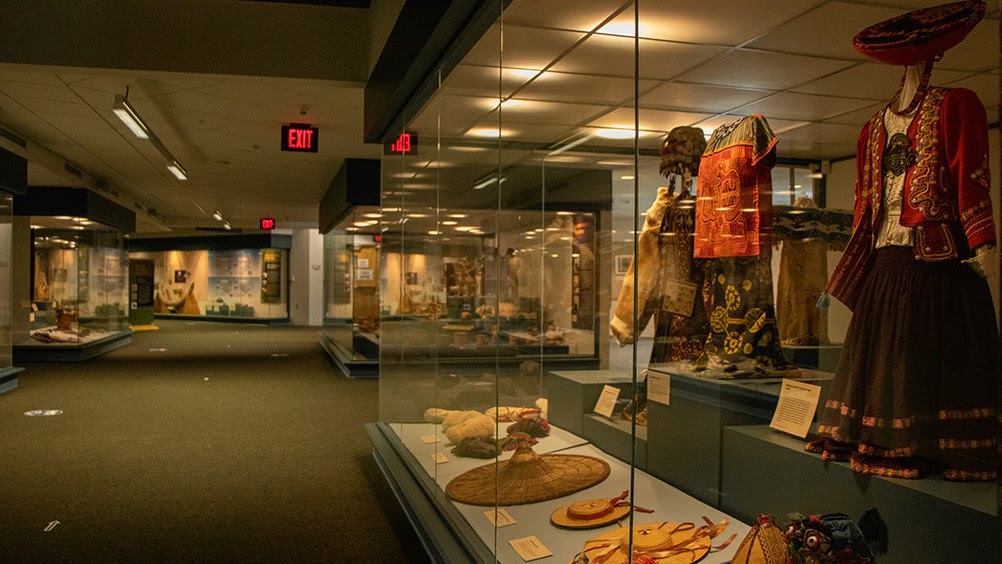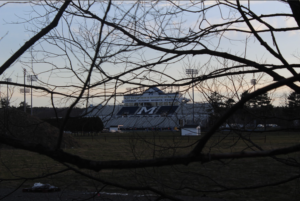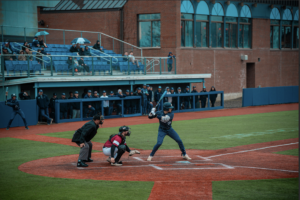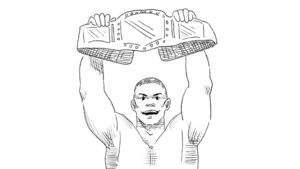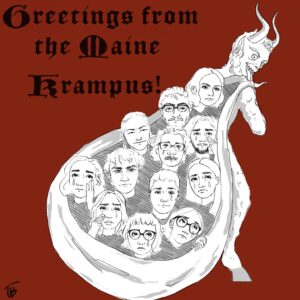“What Does Decolonization Mean” was the focus question for a Zoom panel discussion between speakers Darren Ranco, John Bear Mitchell and Margo Lukens, which was held on Nov. 18 at noon. This panel discussion was free and open to the public.
The discussion was brought to the public by Jennifer Bowen of the University of Maine. This panel discussion was a follow-up to a previous decolonization talk at UMaine last spring. The previous presentation focused on defining the term ‘decolonization’ not focusing on the action of decolonization, which was addressed in the November lecture. This lecture focused more on what action has happened between this past spring and now, highlighting what we can continue to do to drive decolonization efforts.
The speakers were introduced to begin the talk. In 1993, speaker Darren Ranco received his Bachelor of Arts from Dartmouth. After Dartmouth, Ranco earned a master’s in environmental law from Vermont Law School. Prior to his time in the Anthropology Department at UMaine, Ranco earned his Ph.D. from Harvard. He is also the coordinator of Native American research at UMaine.
Speaker John Bear Mitchell is a citizen of the Penobscot Nation from Indian Island in Maine. He serves as the University of Maine System Native American Waiver and Educational Program Coordinator, as well as UMaine’s Wabanaki Center Outreach and Student Development Coordinator. He also is a lecturer of Wabanaki Studies and Multicultural Studies at UMaine. Additionally, Mitchell has served on numerous museum and educational boards throughout the state which focus on Maine’s Wabanaki people.
Speaker Margo Lukens is a professor of English at UMaine and the former director of the Clement and Linda McGillicuddy Humanities Center. Her current research focuses on Native American and First Nations plays and playwrights, Wabanaki literature and storytelling history, innovation for social justice and decolonization work.
A major decolonization effort highlighted in this talk was the signage project here at UMaine. The signage project is possible thanks to the Wabanaki Center at UMaine and the Wabanaki community throughout the state. UMaine views the signage projects as an opportunity to make the unseen places, people, languages and historical narratives of indigenous communities visible and meaningful, as well as to create a more inclusive and respectful environment for native students on the Orono campus.
The signage project consists of three phases. The first phase installed ten bilingual signs on campus and placed internal signage at the Wabanaki Center. The second phase of signs was installed along the University Mall. The third phase of the project involves larger entrance signs in prominent places across campus.
For those who are interested in learning more, or who want to stay involved with decolonization efforts here at UMaine, visit the Abbey Museum and become involved with the Decolonizing UMaine Committee. The Decolonizing UMaine Committee stemmed from the Maine Wabanaki Reach.
For press related to the signing and the signage project, one can visit the Native American Programs page at: https://umaine.edu/nativeamericanprograms/ or http://www.mainewabanaki reach.org. For general information on the colonization of Native American land, visit: https://www. hcn.org/issues/52.4/indigenous-affairs-education-land-grab-universities. For those who wish to support Tribal sovereignty in Maine, please look to: https://wabanakialliance.com.
Another featured resource is “Dawnland.” “Dawnland” is a film that documents the work of the first government-sanctioned truth and reconciliation commission in the United States. This film follows members who travel across Maine and gather testimony on the impact of the state’s child welfare practices that remove children from Wabanaki families and bring them to foster homes with white families. To view this film, follow the link: https://ursus.maine.edu/record=b738293 4~S1.
If you are current staff members or students at UMaine, one can use this link to view this film with your UMaine login information. If one doesn’t have a UMaine login and still wishes to view the film, you still can. To do so, one can navigate to PBS, https://www.pbs.org/ independentlens/films/dawnland/, and stream free of charge.
